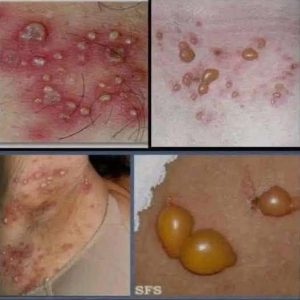While gluten might appear harmless, for some individuals, it can silently provoke significant health problems. Often lacking clear warning signs, its impact may remain undetected, potentially leading to long-term harm. It is crucial to recognize how your body responds to gluten for safeguarding your overall well-being.
1. The loss of eyelashes
Gluten intolerance, particularly in conditions like celiac disease, can cause hair loss, including the loss of eyelashes.
In addition, gluten-induced damage to the small intestine can lead to nutrient malabsorption, leading to deficiencies in essential vitamins and minerals like iron, zinc, and biotin, all crucial for healthy hair growth.
2. Issues with the digestive system
The symptoms of gluten sensitivity predominantly have effects on the digestive system, manifesting as bloating, nausea, diarrhea, abdominal pain, and sometimes constipation. These symptoms are frequently misinterpreted as signs of other conditions, causing a common misdiagnosis of irritable bowel syndrome (IBS). According to studies, IBS affects 10-15% of the global population. However, for people with gluten sensitivity, such misdiagnoses can delay appropriate treatment, prolonging their discomfort and leaving their symptoms unaddressed.
3. Weight changes
Gluten intolerance can result in unexpected weight fluctuations, resulting in unexplained weight loss or gain. These changes are often driven by underlying inflammation at the cellular level and disruptions in normal metabolic processes. Though abrupt weight changes can signal a range of health concerns, they may specifically suggest gluten intolerance when accompanied by additional symptoms related to nutrient malabsorption, such as digestive issues, fatigue, or deficiencies in essential vitamins and minerals.
4. Hormonal imbalance issues
Gluten intolerance is strongly associated with hormonal imbalances, which can present as unexpected weight fluctuations, irregular menstrual cycles, premenstrual syndrome (PMS), and disruptions in sleep patterns. These hormonal irregularities often become more noticeable during pivotal life stages such as pregnancy, puberty, and menopause. Interestingly, these symptoms are most commonly observed in women, underscoring a potential gender-specific aspect of gluten intolerance’s impact on hormonal health.





